Grow-how: expert tips for amateur gardeners
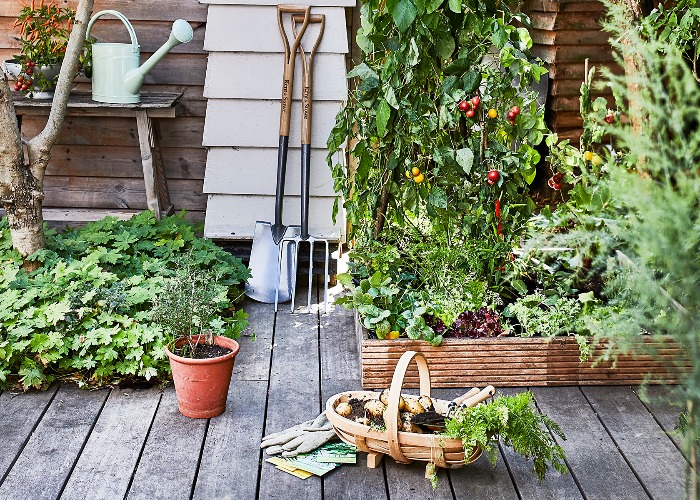
Three knowledgable gardeners share some fail-safe secrets for successful growing
With so many of us spending much more time in our homes, lots of us have tried our hands at small gardening projects – with mixed success.
Gardening is proven to reduce high blood pressure, alleviate depression, make you fitter and happier, so we really should all be getting our hands dirty. But for every aspiring Alan Titchmarsh, there are just as many of us who can’t tell a trowel from a trug.
With that in mind, we’ve asked three gardening experts for their tips for getting started.
Whether you’ve just moved into a new house where the garden needs work or you’re ready to move on from indoor planting, take these learnings to heart and you’ll be growing your own in no time!
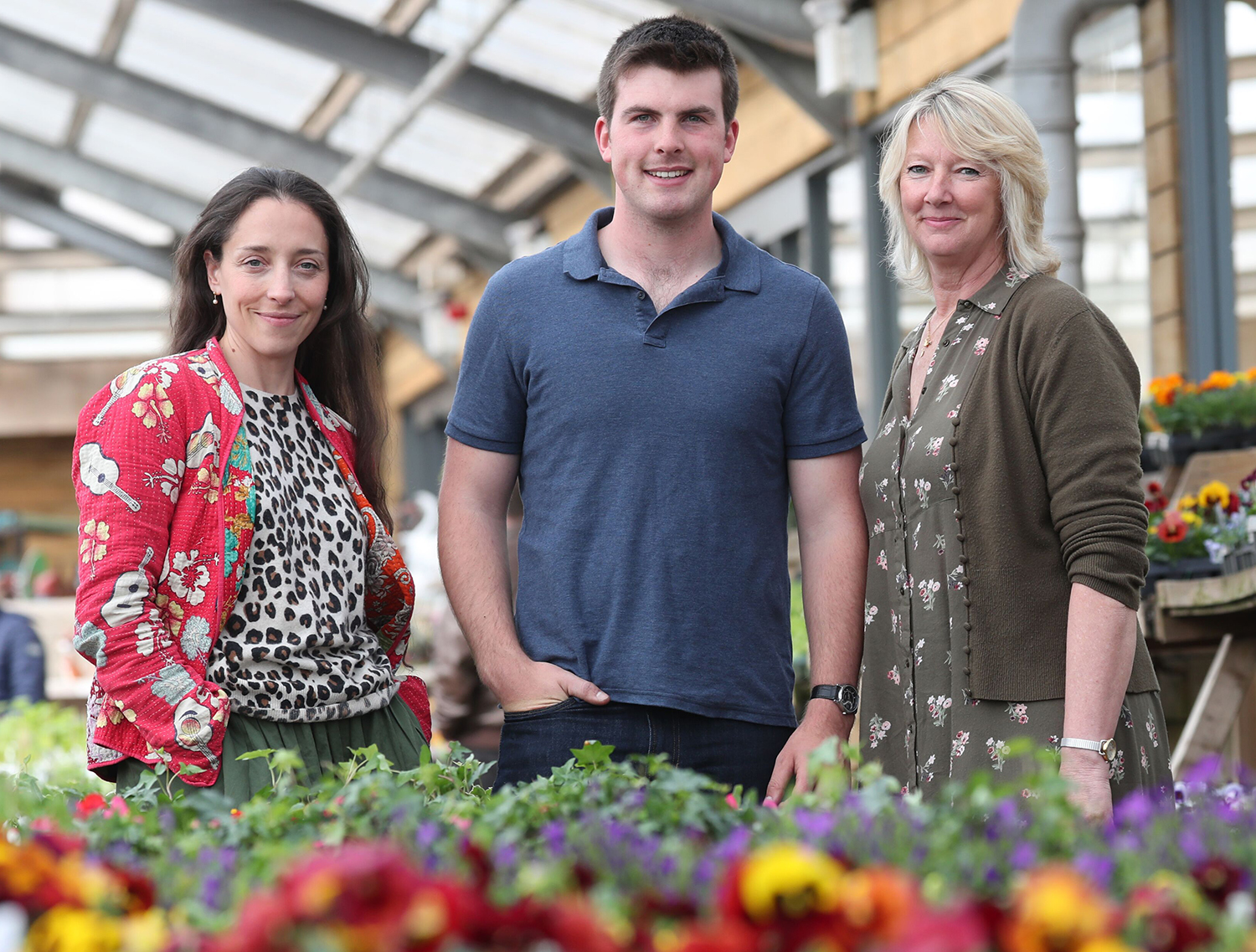
From left to right: Huw Richards, Louise Midgeley and Laetitia Maklouf provide gardening tips for beginners
Huw Richards – Huw uploaded his first gardening video to YouTube when he was twelve and has since surpassed 20 million views online, on his channel HuwsNursery. He published his debut book, Veg in One Bed, in 2019.
1) Try these starter varieties
Strawberries, Potatoes and Sweet Peas all grow fantastically in larger containers (30-50 litres). You can also grow annual herbs and salad leaves in window boxes or smaller pots. If you only have a windowsill inside, then pea shoots and broad beans are fantastic!
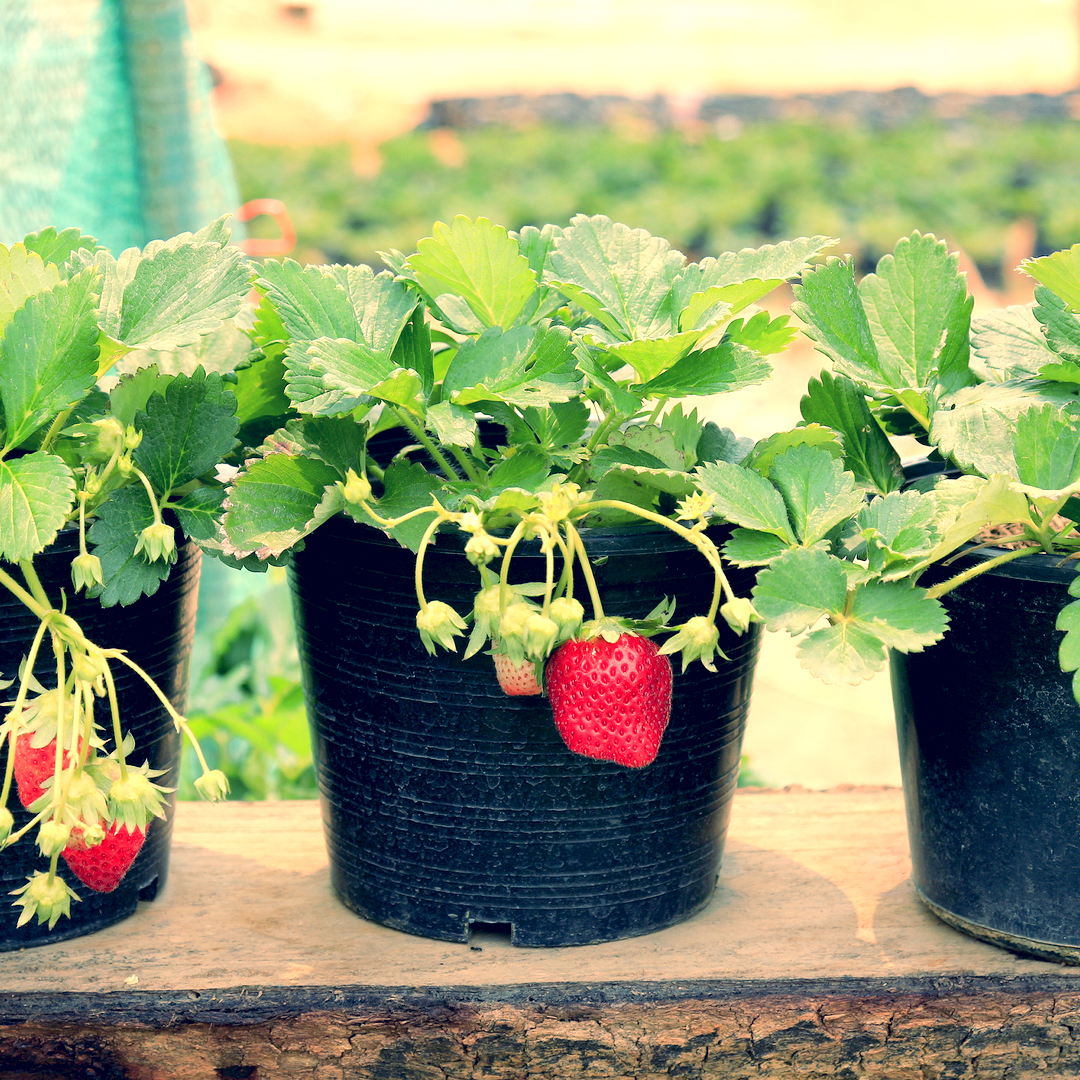
2) Use cardboard for seed germination
If you are sowing seeds in modules (black plastic trays of small individual seed pots), cover the modules with cardboard and this stops them drying out. When seeds dry out as they are trying to grow it can greatly reduce germination rates. Then once the seedlings appear, remove the cardboard and water as usual.
3) Tackle slugs naturally
Although not possible for everyone, keeping a flock of ducks is our best way of keeping the slug population down. I think every allotment in the UK should have its own flock of slug busting ducks! One more tip is to water early in the morning rather than at dusk because moisture attracts slugs.
Laetitia Maklouf – Gardener, writer and mother, Laetitia fits gardening into her life in five-minute bursts before the school run and chronicles her endeavours on Instagram and her blog (check out her tips for virgin gardeners for 10 brilliant ideas).
1) Start by sowing seeds
Laetitia says: Truly, there is no better way to educate yourself than to nurture seeds through from babyhood onwards. I think edibles can be an enormous pull here, and annuals – quick flash-in-the-pan plants that will blow your socks off with their growth and leave you with a sense of achievement.
2) Take time to observe
If you only have a windowsill, perhaps start with some herbs, and learn how they respond best to being chopped (a great education) and if you have a garden then begin with what’s there.
Weed the ground, become intimately familiar with it. Plant nothing until you’ve had a good gawp for a year or more. And yes, eat up all the media, especially podcasts and telly and Instagram… it all has value and you’ll find your gardening niche much quicker that way.
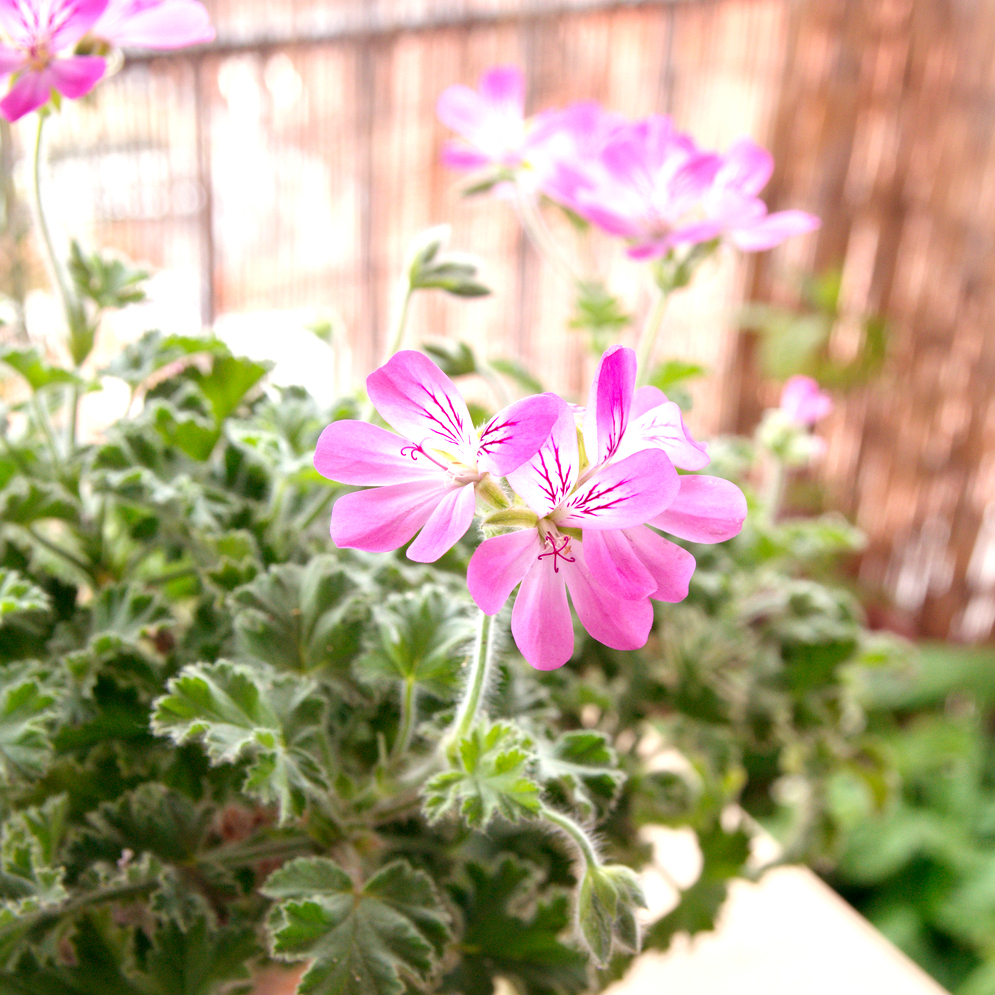
3) Get a potted geranium
Humans, in my limited experience, benefit from having experienced success, and they also thrive on instant gratification. If you don’t have a garden, get a scented pelargonium, and watch it throw out flower after flower.
4) Do five minutes a day
Do five minutes a day, every weekday, rather than leaving all your gardening to the weekend, when you could be lazing around enjoying your garden. Five minutes can be fitted into the beginning or end of the day and becomes a habit, like brushing your teeth.
Obviously, in the winter this becomes even less, but the idea is to break down large tasks into tiny daily chunks things get done remarkably quickly this way. Lastly, invest in some gardening gloves: they are utterly essential for the whole five-minute dash thing because scrubbing your nails takes an age.
5) Start at the back door
So many of us garden enthusiasts suffer from total overwhelm, particularly at this time of year when everything (including the weeds) are romping away and the task of getting control back seems insurmountable. If you begin with the first thing you see, and just concentrate on that – a quick five minutes – then I SWEAR all will be well.
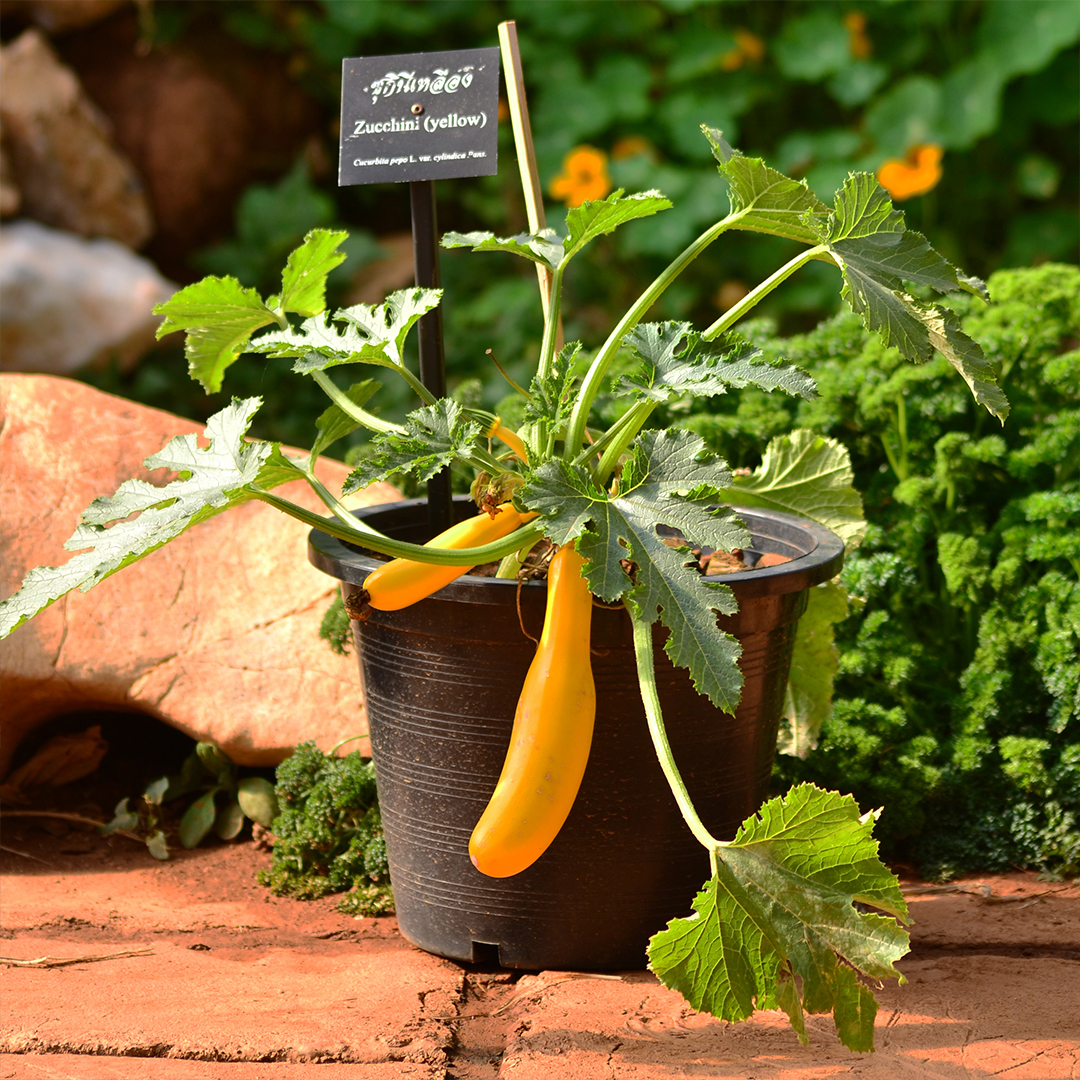
6) Grow a squash on a balcony
There is so much choice even when you have limited outdoor space! I mean, obviously you can’t grow an oak tree on a windowsill, but ANY type of edible leaf, or pretty much any herb is possible on that tiny strip of real estate.
The point is to have a go – I’m always amazed at what I can get away with – squash in a large pot is one of my favourite suggestions for people with tiny terraces. It grows like the clappers and ends up making a space seem bigger.
Louise Midgley – Following a career in fashion, Louise switched to gardening after having children and is now a freelance writer and the Gardening Editor at the Sunday Express.
1) Ask Google when you face a new challenge
Louise says: The only real way to learn is to jump right in and learn by your mistakes. With gardening, there is often more than one way to do something.
If you need to prune a shrub, plant seeds, improve the condition of your lawn or learn how to divide an overgrown clump of perennials, there will be a YouTube video to show you how it is done. This visual way of learning is so much easier than reading a book.
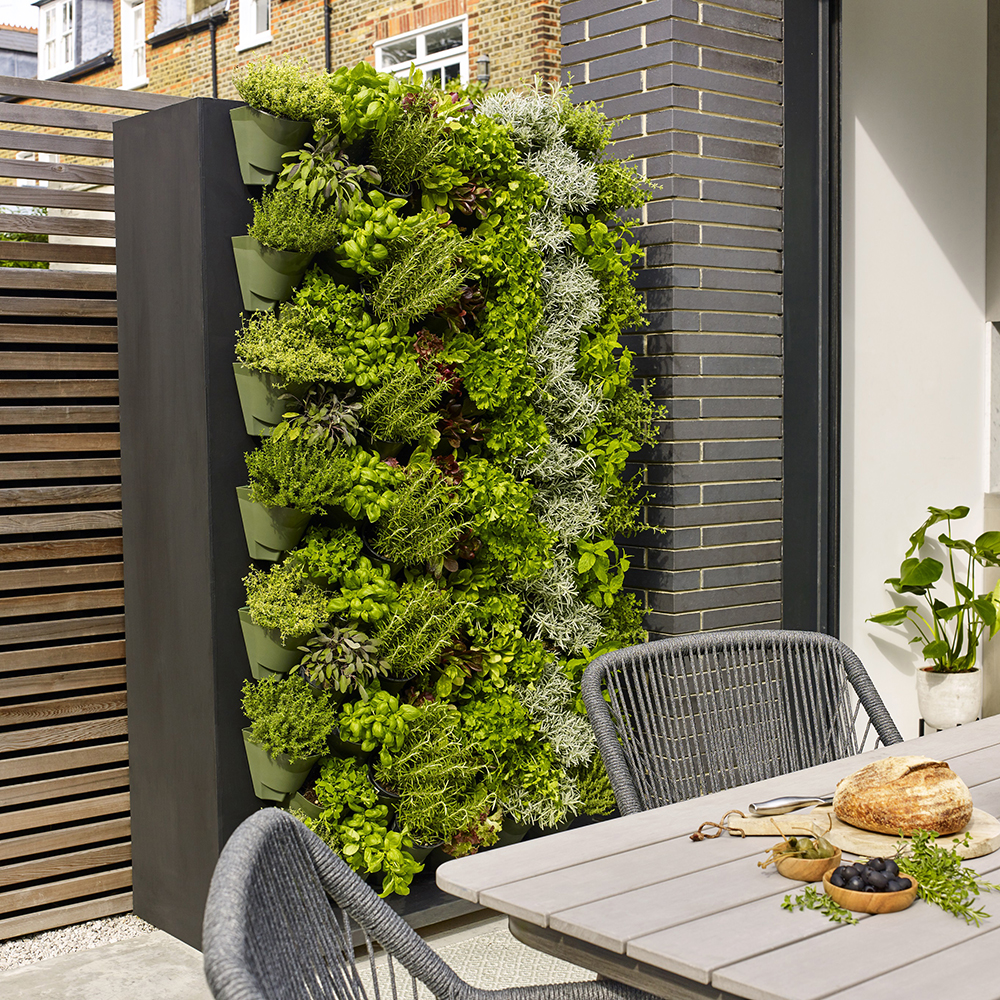
2) Use containers in small spaces
You don’t need much space to grow delicious fruit, a container will do nicely for some of the newest compact varieties that include raspberries, gooseberries and mulberries.
Also, successional sowings of cut-and-come-again salad leaves will fill plates for weeks on end. If you don’t have much ground space invest in a vertical planting system and plant upwards.
3) Utilise your local experts
You can always ask for help with plant care at your local garden centre. Dobbies actually run free weekly sessions, covering a variety of seasonal topics and solve common conundrums. Ask a member of staff for advice when you buy your supplies, they can give useful pointers to get you started.
4) Invest in a good pair of gloves
I couldn’t live without a decent pair. I use warm ones in winter and thin waterproof ones in summer.
READ MORE: 11 ways to spruce up your garden for spring
Comments
Be the first to comment
Do you want to comment on this article? You need to be signed in for this feature